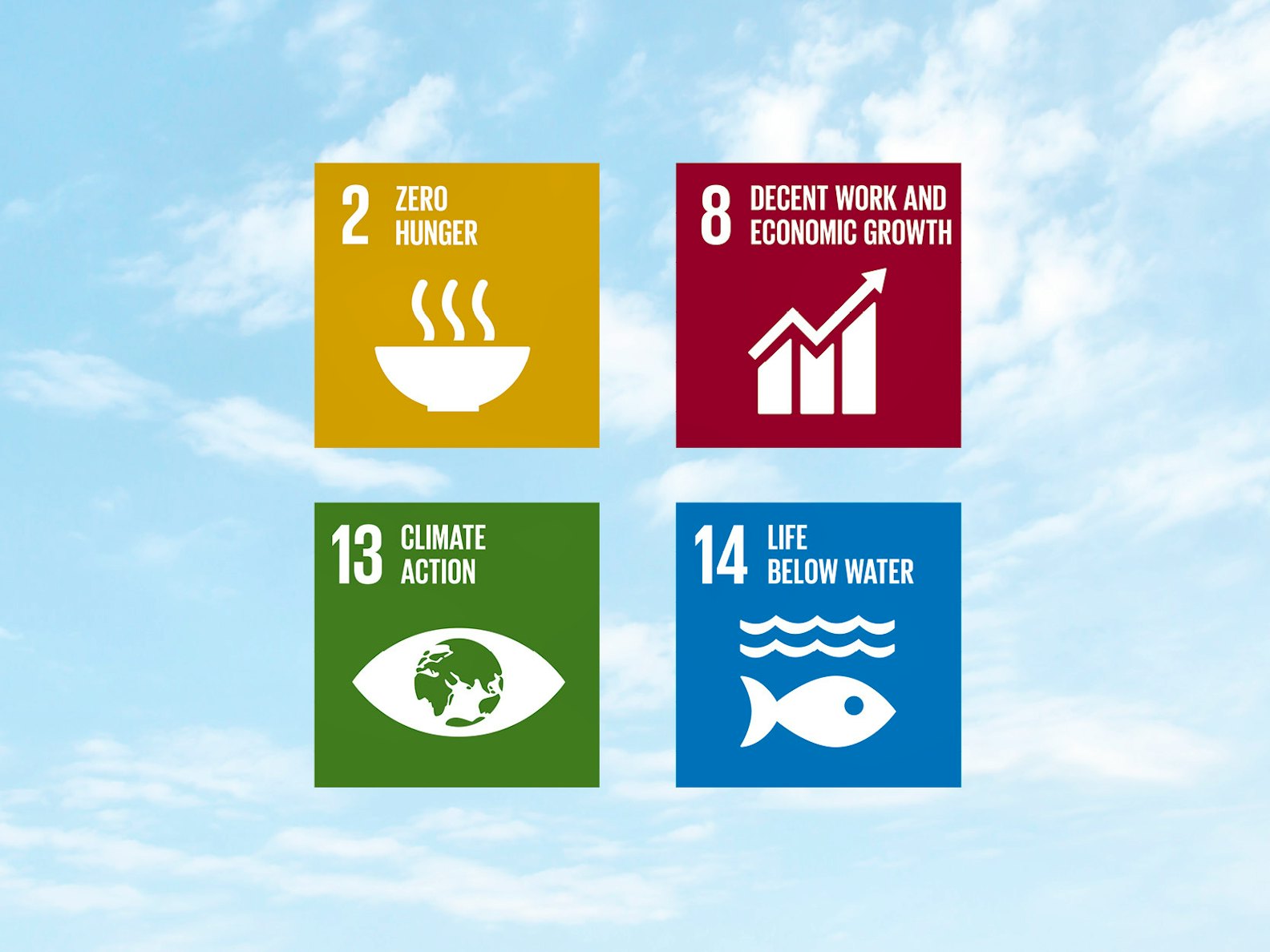Our focus SDGs
Focusing our efforts
At Aller Aqua we support the UN’s Sustainable Development Goals, and we are proud to be part of a sustainable future.
Although our strategy aligns with sustainability practices and actions, we emphasize the importance of working with all the UN's Goals.
In the daily running of our business, we have chosen four goals to focus our efforts:
GOAL 2: Zero hunger
Everyone has the right to nutritious meals.
We support goal 2 by delivering high-quality high-efficiency fish feed and thereby enabling fish farmers to produce healthy food, rich in proteins, for their families, whilst making a living.
Selling the fish locally makes healthy food more accessible locally, whilst creating funds for more food, as well as developing the business.
GOAL 8: Decent work and economic growth
Decent work can have a big impact on a family's earnings.
Many governments see that an increase in aquaculture is necessary to sustain growing populations with food, and lower import. We support schemes to broaden the knowledge and spread of aquaculture worldwide.
We advocate for an increase in aquaculture, which will create both decent work and economic growth for the involved families, as well as at government level.
GOAL 13: Climate change
We are all responsible for taking care of the environment.
We produce environmentally friendly high-quality fish feed, which reduces the impact on the water environment as well as the climate in general.
Our feed pellets reduce water pollution by minimizing waste in the water and ensuring that the farmer achieves maximum output from minimum input. We support a wider spread of aquaculture, which creates the smallest carbon footprint of any meat production.
By choosing regionally sourced raw materials, we ensure a reduction in transport-related pollution.
GOAL 14: Life below water
Protecting our oceans is vital.
Using Aller Aqua’s environmentally friendly fish feed reduces discharge in the water.
We consider our use of raw materials carefully to reduce use of marine ingredients, thus protecting wild fish in their natural habitats.
